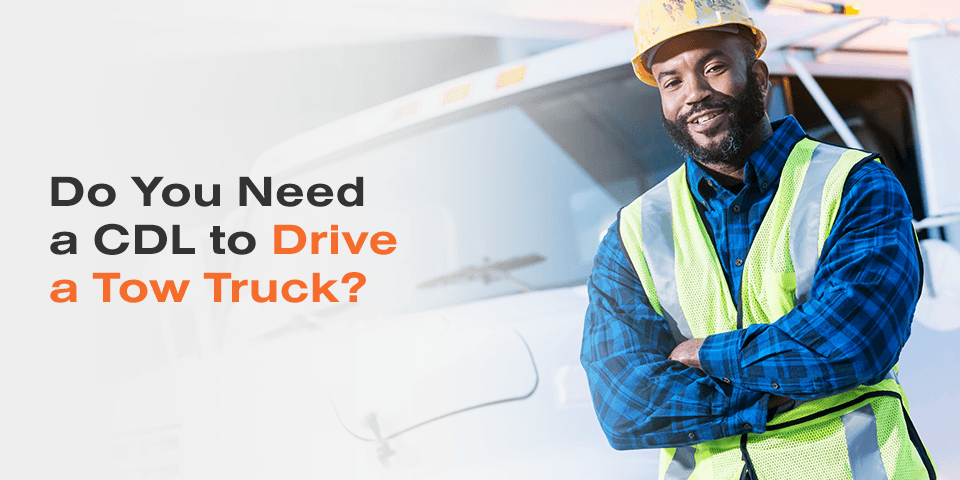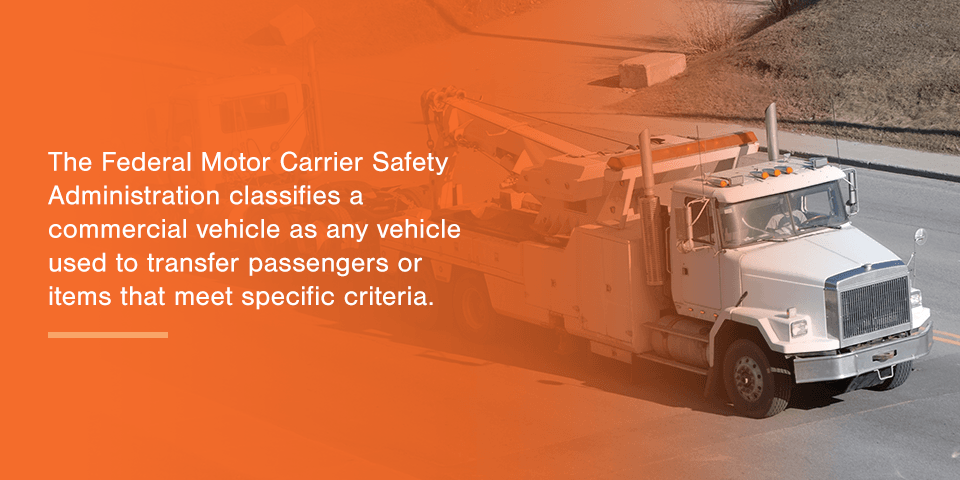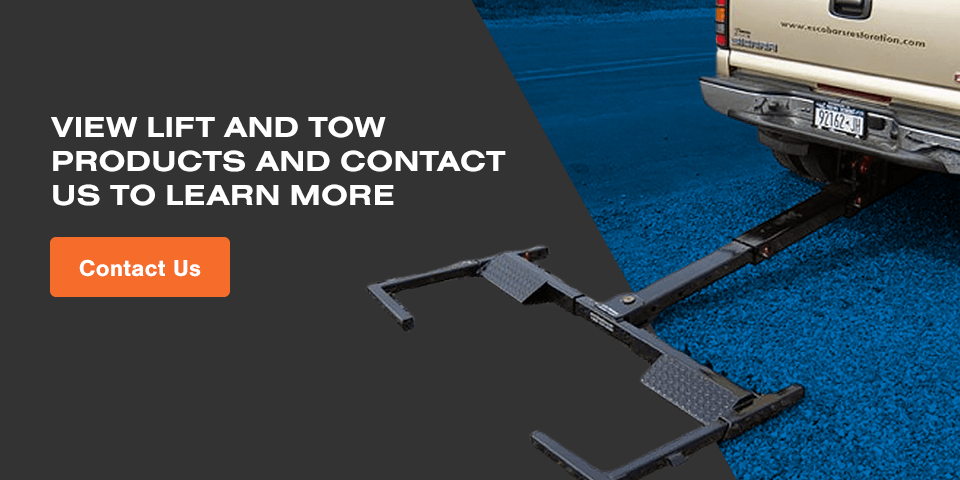
Understanding CDL Requirements for Tow Truck Operators
Tow truck operators respond to incidents like road accidents and are key players in vehicle transportation. Towing services might repossess vehicles, move disabled and improperly parked cars to the impound, or help damaged vehicles safely reach repair shops. If you’re thinking about entering a career in the towing industry, you might be wondering, do you need a CDL to drive a tow truck? It’s essential to understand the legal licensing requirements for operating hauling vehicles.
If you’re thinking about entering a career in the towing industry, it’s essential to understand the legal licensing requirements for operating hauling vehicles. You might wonder if you can drive a tow truck with a regular license. Commercial tow truck license requirements vary depending on the size and weight of your vehicle and trailer. These requirements can also vary across states, and many cities and countries may impose additional criteria like permits and insurance coverage. Still, most tow truck drivers need a special driver’s license to operate a commercial vehicle on public roads.
Discover what certification you need and how to get a tow truck license in this guide.
Table of Contents
- CDL Levels of Certification
- What License Do You Need to Drive a Tow Truck?
- Do You Need Tow Truck Driver’s Endorsements?
- Possible CDL Restrictions
- Skill Requirements to Be a Tow Truck Contractor
- View Lift and Tow Products and Contact Us to Learn More
CDL Levels of Certification
There are three certification levels for the four main types of tow trucks and drivers. Each level requires operators to log work hours and take a written exam. Level 2 and level 3 often require oral interviews and written exams. If you’re looking to make a career of driving a tow truck, it is wise to achieve all three certifications.
The certification levels and requirements are as follows:
- Level 1 certification allows you to legally operate a hidden wheel lift. The criteria to receive this certification involve completing a minimum of 90 days of towing experience and meeting all local, state and federal requirements.
- Level 2 certification involves at least one full year of experience as a tow truck operator. Additionally, you will need to meet all government requirements to reach this level of certification and currently possess level 1 certification.
- Level 3 certification requires at least two years of experience as a tow truck operator and level 2 certification. You must meet additional requirements and may need to provide a letter of recommendation.
Beyond licensing, follow our tow truck driver safety checklist.

What License Do You Need to Drive a Tow Truck?
Many potential drivers ask, can I drive a tow truck with a regular license? The answer depends on the weight of the tow truck and the cargo being transported. If your tow truck falls under certain classifications, a CDL may be necessary.
The license required to drive a tow truck depends on several factors, including whether the vehicle is commercial or non-commercial. The Federal Motor Carrier Safety Administration classifies a commercial vehicle as any vehicle used to transfer passengers or items that meet specific criteria. Therefore, if your tow truck falls under any of the categories below, you will need a CDL.
- Gross combined weight rating: The gross combination weight and GCWR exceed 26,001 pounds, while the vehicle alone accounts for over 10,000 pounds.
- Cargo weight: The vehicle’s weight exceeds 26,001 pounds but will not pull cargo over 10,001 pounds.
- Passenger capacity: A vehicle designed to hold over 15 passengers and the driver, or if the vehicle transfers hazardous materials.
In most states, you can apply for a commercial driver’s license at the Department of Motor Vehicles (DMV) or transportation department. You can verify the right application steps and pricing on the DMV website.
Class A License
Class A licenses are typically for vehicles that fall into the commercial motor vehicle category. Vehicles that may require a Class A license include light-duty tow trucks. If you have a Class A CDL and plan to tow several vehicles at once, you will need the T endorsement, allowing you to pull multiple trailers or vehicles with your light-duty tow truck. The T endorsement typically requires an additional written test but will enable you to carry two or three times more freight.
Class B License
A Class B license is necessary for vehicles used for heavy-duty jobs, including dump trucks or other specialty vehicles. For tow trucks, a Class B license is typically only required to operate four-car carriers, including service vehicles and most Class 7 or Class 8 tow trucks. With the correct endorsements, you can also use a Class B CDL to drive Class C vehicles.
Class C License
A Class C license is typically only for non-commercial vehicles, but there are non-commercial variations of this license. For example, you may operate a tow truck with a non-commercial Class C license if the tow truck weighs under 10,000 pounds and you do not need to tow something that will cause your weight score to exceed 26,000 pounds. You will need a commercial Class C license if you need to transport any hazardous substance requiring a placard.
Do You Need Tow Truck Driver’s Endorsements?
In addition to a CDL, endorsements can affect the vehicle type you can operate or the amount of freight your tow truck can carry. When applying for a CDL, a driver may need to apply for specific endorsements depending on the type of work they plan to do. CDL endorsements are essential to understand when determining the requirements for tow truck drivers.
- H endorsement: The H endorsement, also known as the HAZMAT endorsement, allows you to operate a vehicle containing hazardous materials. To obtain an H endorsement, you must pass an exam proving you can safely handle hazardous materials.
- N endorsement: An N endorsement, also known as the tank endorsement, allows you to haul a tank or tanker of liquid or gaseous materials. Drivers with an N endorsement must adjust to the act of driving with a tank full of material that moves and distributes its weight differently.
- P endorsement: The P endorsement, commonly known as the passenger endorsement, is a requirement for drivers looking to operate a vehicle transporting more than 16 people. A P endorsement requires an additional knowledge test and skills test.
- S endorsement: The S endorsement, also known as the school bus endorsement, is necessary when you plan to drive a school bus with children. In addition to a written test, the S endorsement often requires a background check and other forms of testing and evaluation.
- T endorsement: A T endorsement allows you to operate a truck with double or even triple trailers. Towing more than one trailer at a time will enable you to transport additional freight in one trip.
- X endorsement: The X endorsement allows you to haul large loads of hazardous liquid or gas materials. In most cases, you’ll need an H endorsement as a prerequisite to receiving an X endorsement.
Possible CDL Restrictions
CDL endorsements enable you to carry specific freight or operate additional vehicle types. On the other hand, CDL restrictions may limit the type of vehicle or machinery you can use. To avoid potential CDL restrictions, you should take any road test in the same vehicle you are looking to get a CDL to operate.
- E restriction: The E restriction prohibits using a vehicle with a manual transmission.
- L restriction: An L restriction prohibits operating a vehicle with a full air brake system.
- M restriction: An M restriction means you can operate a Class B or Class C passenger vehicle or school bus. With an M restriction, you can’t drive a Class A vehicle or school bus.
- N restriction: On the other hand, an N restriction prohibits you from operating a Class B vehicle or school bus. You can only operate a Class C passenger vehicle or school bus.
- O restriction: The O restriction limits drivers from driving a Class A vehicle with a fifth-wheel connection.
- V restriction: A V restriction signifies if a license holder has reported a medical variance. Common conditions that may require a V restriction include diabetes, hearing issues, vision complications or seizures.
- Z restriction: Like the L restriction, the Z restriction prohibits you from operating a vehicle with full air brakes. If you performed the road test in a vehicle outfitted with air brakes over hydraulic brakes, you might get the Z restriction issued to you.
Skill Requirements to Be a Tow Truck Contractor
In addition to licensing, there are several tow truck driver requirements that aspiring operators should meet, including physical fitness, attention to detail, and good communication skills. The ideal driver is physically fit enough to perform heavy lifting and other strenuous duties, and the ability to drive for long periods of time is as valuable. Tow truck operators also need a keen eye for detail, as the slightest error in the towing process can lead to costly vehicle damage. Good communication is essential to navigate roadside assistance and other towing services, like vehicle repossession.
Beyond inherent traits and professional skills, it’s wise to stay in the loop with industry news and insights. Understanding developments in the towing service industry can help grow your career or business. You can learn about new products and updated vehicle models that can offer heightened efficiency and other benefits.
View Lift and Tow Products and Contact Us to Learn More
Lift and Tow is the original innovator and proprietor of the hidden wheel lift, and our innovations simplify the towing process. With the right licensing and durable Super-Series and Z-Series units in your fleet, you can provide reliable and efficient towing services to your customers.
If you want to learn more about our hauling vehicles, towing accessories and parts, contact us online today or reach out directly at 717-727-0332. Our agents are ready to help you boost service quality and efficiency with dependable towing products.
